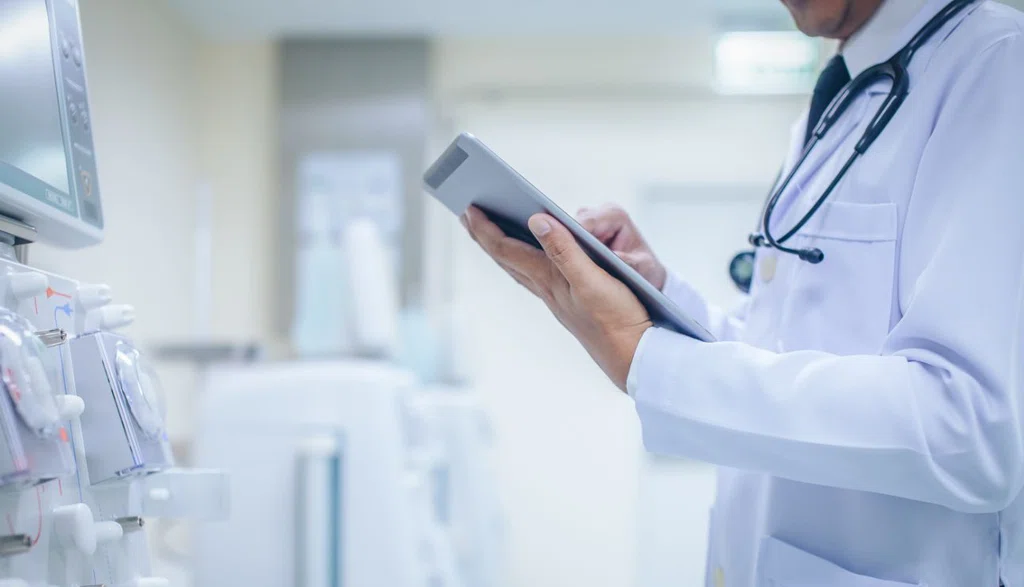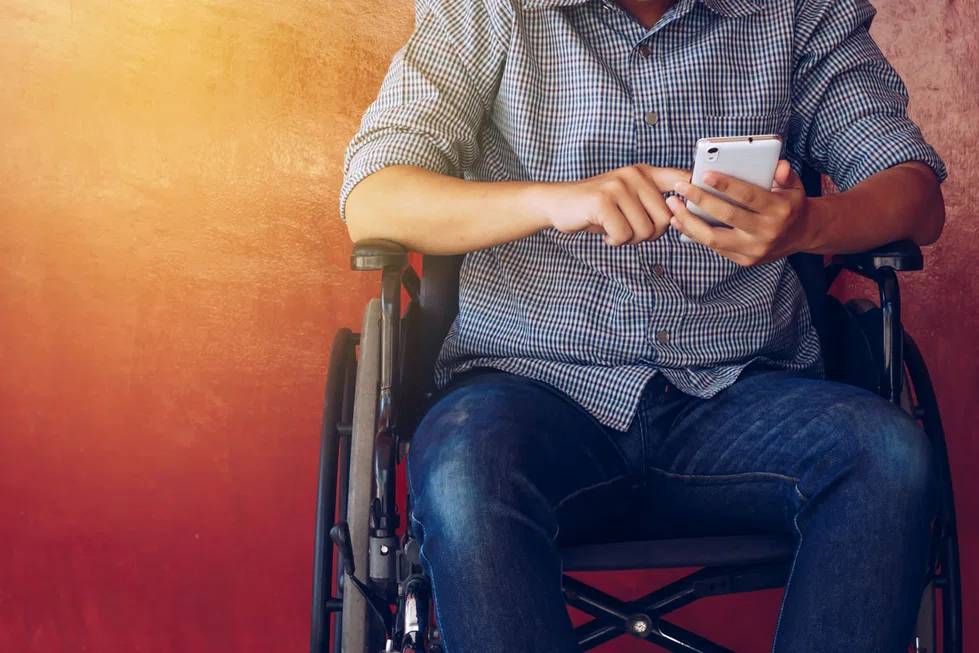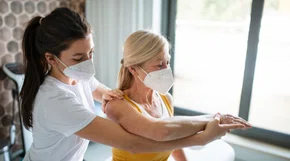
President’s Letter
2023 Metrics
Cycle of Translation
Visionary Gifts

Discovery to Clinic

Innovative Education

Translational Luminaries
Introduction
Jerold B. Katz Academy of Translational Research
Infectious Diseases Research Fund
Houston Methodist Dr. Mary and Ron Neal Cancer Center
Ann Kimball and John W. Johnson Center for Cellular Therapeutics at Houston Methodist
The Food & Health Alliance within the Houston Methodist Lynda K. and David M. Underwood Center for Digestive Disorders, Immunology Center and the Fondren Inflammation Collaborative
Houston Methodist Cockrell Center for Advanced Therapeutics
Paula and Joseph C. “Rusty” Walter III
Translational Research Initiative
COVID-19 Studies
Outcomes Research
Restorative Medicine
Houston Methodist Advances Research into Neural Prosthetics
Noninvasive Spinal Stimulation Works to Restore Movement After Spinal Cord Injury
An Innovative Approach to Treat Even the Most Stubborn-to-Heal Fractures
Cell Encapsulation May Hold the Key to Preventing Cell Transplant Rejection
Houston Methodist, Rice University, Baylor College of Medicine Design Noninvasive Tech to Help Remove Brain’s Metabolic Waste
Houston Methodist Investigators Nanotechnology Investigators Awarded Prestigious Grants from the Department of Defense
Precision Medicine
Cancer Cell Type (Seed) and Tumor Microenvironment (Soil) Control Therapeutic Antibody Delivery and Efficacy
Novel Drug Combination Can Target Triple-Negative Breast Cancer for Treatment
A Houston Methodist and Purdue University Breakthrough May Result in a More Effective Tuberculosis Vaccine
Importance of the Coronary Artery Calcium Score in Risk Assessment and Prevention of Atherosclerotic Cardiovascular Disease
New Virtual Intensive Care Unit Simultaneously Improves Patient Care and Bed Capacity
result
Introduction
Joint Weill Cornell–Houston Methodist Academic Institute Doctoral Program Welcomes its Inaugural Class
Visionary EnMed Program Soars to New Heights
Neural Control of Organ Degeneration and Regeneration (NeuralCODR) Training Program
Faculty and Research Development
Graduate Medical Education



Science in Service
of
Medicineresult
President's letter
2021 Metrics
Cycle of Translation
Visionary Gifts of Hope


Introduction

Ann Kimball and John W. Johnson Center for Cellular Therapeutics at Houston Methodist

Houston Methodist Dr. Mary and Ron Neal Cancer Center

The Food & Health Alliance within the Houston Methodist Lynda K. and David M. Underwood Center for Digestive Disorders, Immunology Center and the Fondren Inflammation Collaborative

Houston Methodist Cockrell Center for Advanced Therapeutics

Paula and Joseph C. “Rusty” Walter III Translational Research Initiative

Jerold B. Katz Academy of Translational Research

Infectious Diseases Research Fund

From Discovery to Clinic


What is "Discovery to Clinic"?

Restorative Medicine


Houston Methodist Advances Research into Neural Prosthetics

Noninvasive Spinal Stimulation Works to Restore Movement After Spinal Cord Injury

An Innovative Approach to Treat Even the Most Stubborn-to-Heal Fractures

Cell Encapsulation May Hold the Key to Preventing Cell Transplant Rejection

Houston Methodist, Rice University, Baylor College of Medicine Design Noninvasive Tech to Help Remove Brain’s Metabolic Waste

Houston Methodist Investigators Nanotechnology Investigators Awarded Prestigious Grants from the Department of Defense

Precision Medicine


Cancer Cell Type (Seed) and Tumor Microenvironment (Soil) Control Therapeutic Antibody Delivery and Efficacy

New Virtual Intensive Care Unit Simultaneously Improves Patient Care and Bed Capacity

Novel Drug Combination Can Target Triple-Negative Breast Cancer for Treatment

A Houston Methodist and Purdue University Breakthrough May Result in a More Effective Tuberculosis Vaccine

Importance of the Coronary Artery Calcium Score in Risk Assessment and Prevention of Atherosclerotic Cardiovascular Disease

Translational Luminaries




Discovery to Clinic
Outcome Research

Houston Methodist Researchers Are Developing Mobile Apps to Improve Clinical Outcomes in Patients
Houston Methodist Researchers Are Developing Mobile Apps to Improve Clinical Outcomes in Patients
Introduction
01
Mobile App Improves Joint Replacement Surgery Outcomes
02
Mobile App (MOCHA) for Breast Cancer Survivors Promote Healthy Lifestyle Choices and Weight Loss
03
Breast Cancer Risk Calculator App (BRISK) May Reduce Unneeded Biopsies
04
Mobile App That Could Revolutionize Stroke Diagnosis

The potential benefits of mobile health technology seem obvious: engaging a patient provides opportunity for that patient to get informed and be empowered to actively participate in their own care. However, evidence supporting the effectiveness of mobile health platforms is limited. Houston Methodist researchers are developing patient-facing applications (apps) that will provide the supporting evidence needed and serve patients. Here’s a brief look at the mobile apps researchers are working on and how they are improving patient outcomes.
01
Mobile App Improves Joint Replacement Surgery Outcomes

An observational study published in the journal JMIR mHealth and uHealth compared the outcomes of 2,059 patients who underwent a total hip or knee replacement by orthopedic surgeons who used mobile health technology with 2,554 similar patients of nonparticipating surgeons. Led by Roberta Schwartz, PhD, executive vice president and chief innovation officer of Houston Methodist, this study demonstrated that those participating with the mobile health technology showed shorter hospital stays, reduced post-surgery readmission rates and greater patient satisfaction than those in the group not using mobile health.
02
Mobile App (MOCHA) for Breast Cancer Survivors Promote Healthy Lifestyle Choices and Weight Loss

Stephen T.C. Wong, PhD
Treatment for breast cancer can lead to unintentional weight gain, and obesity is associated with a higher risk of breast cancer recurrence. To help cancer survivors make healthy lifestyle choices and lose weight, Stephen T. C. Wong, PhD, the John S. Dunn Sr. Presidential Distinguished Chair in Biomedical Engineering, and his informatics development team at Houston Methodist designed The Methodist Hospital Cancer Health Application, or MOCHA, which is a mobile health app that functions as an interactive resource for cancer survivors. Preliminary data indicate that the more one engages with the app, the more weight one can lose.
03
Breast Cancer Risk Calculator App (BRISK) May Reduce Unneeded Biopsies
Houston Methodist researchers Jenny Chang, MD, the Emily Herrmann Presidential Distinguished Chair in Cancer Research and director of the Dr. Mary and Ron Neal Cancer Center, and Stephen T.C. Wong, PhD, developed the Breast Cancer Risk Calculator (BRISK) to provide precise risk assessments to reduce overdiagnosis and unnecessary biopsies after an abnormal mammogram. Using BRISK, oncologists and radiologists can more accurately determine whether to biopsy breast tissue of this subgroup. Their results were published in JCO: Clinical Cancer Informatics and demonstrate that BRISK can effectively identify faint pathogenic patterns and generate a more accurate risk score for better-informed biopsy decisions after abnormal mammograms.
04
Mobile App That Could Revolutionize Stroke Diagnosis
John Volpi, MD
Diagnosing a stroke quickly in the emergency department is crucial. To best utilize the most effective stroke treatments and improve patient outcomes, it’s critical to find an effective and rapid stroke diagnostic tool. Toward this end, John Volpi, MD, associate professor of clinical neurology, and his team at Houston Methodist collaborated with researchers at Pennsylvania State University to develop a mobile app that uses a machine learning algorithm for computer-aided evaluation of facial movement weaknesses and speech ability to determine the presence of stroke in patients. Their data indicate that the app’s diagnostic capability is comparable to that of emergency room health care providers. Most notable, assessment using the app takes less than four minutes. The tool could be used by emergency room professionals, caregivers or patients themselves to make assessments and more quickly determine critical next steps. This would give patients a key advantage in surviving and successfully recovering from a stroke.
More from Discovery to Clinic















